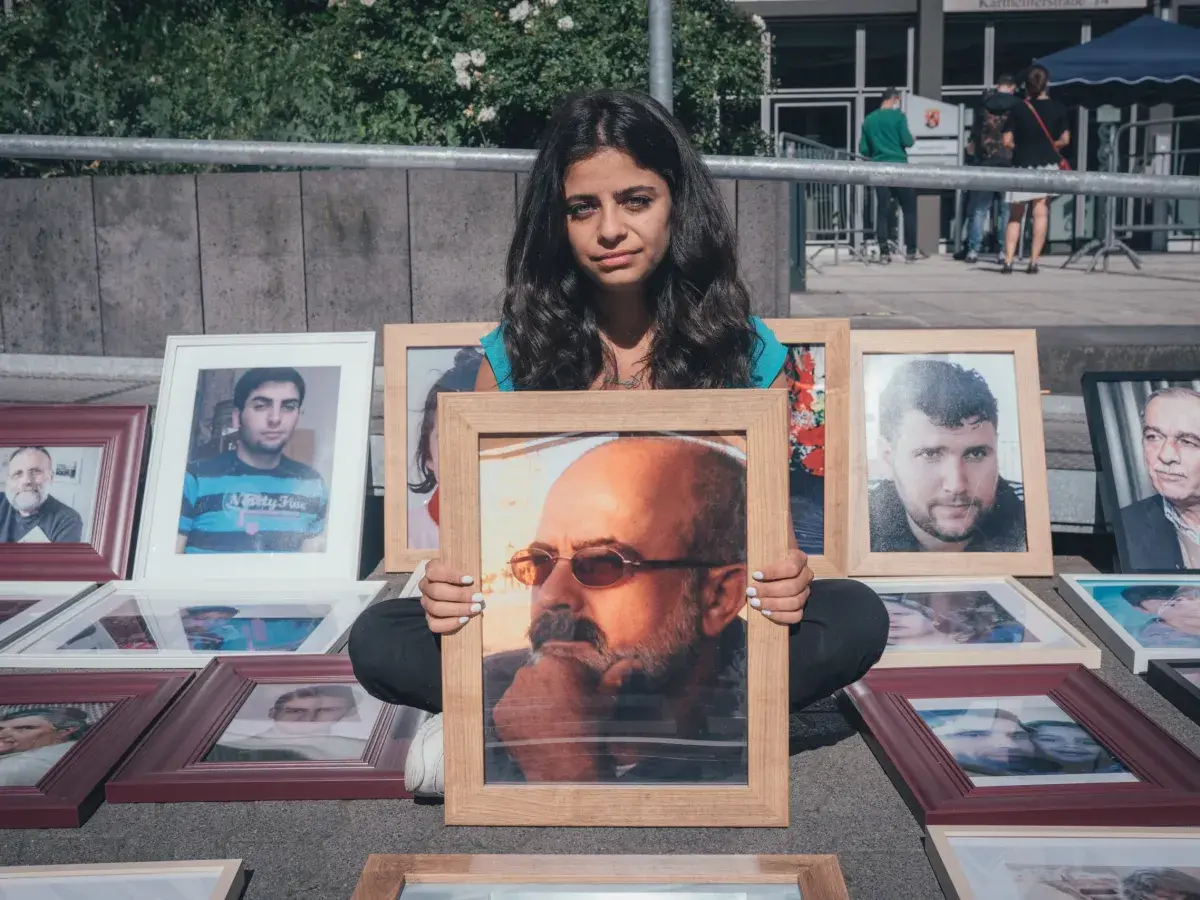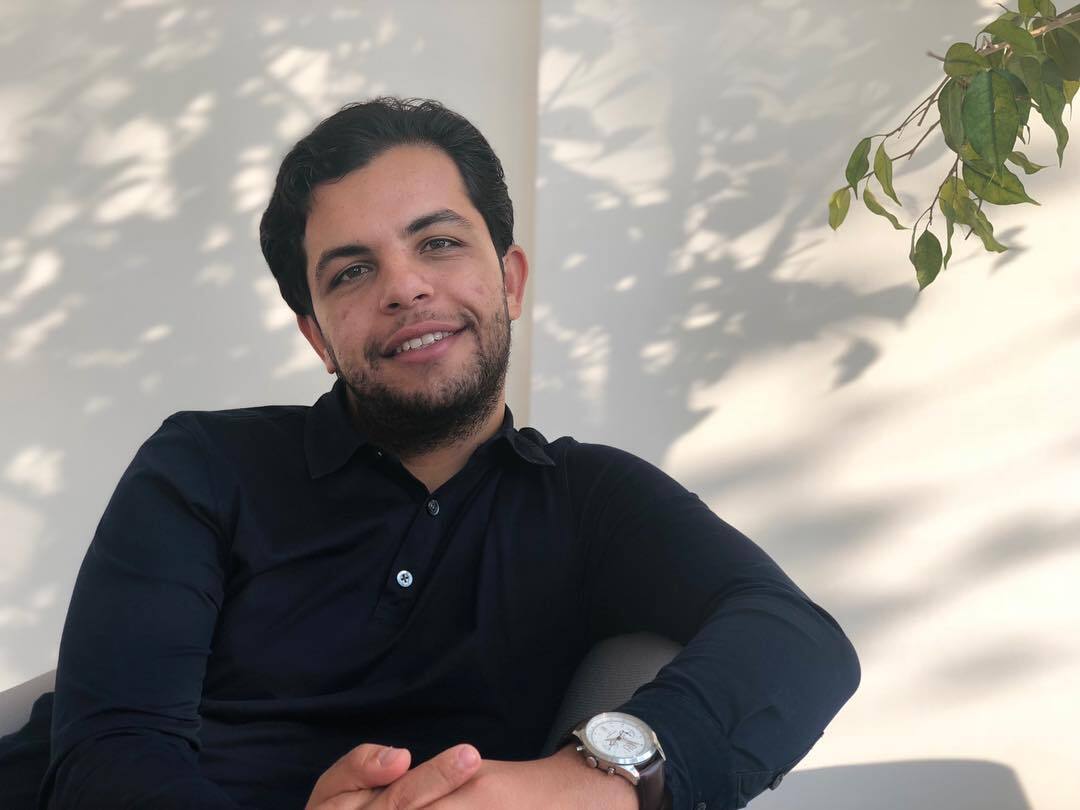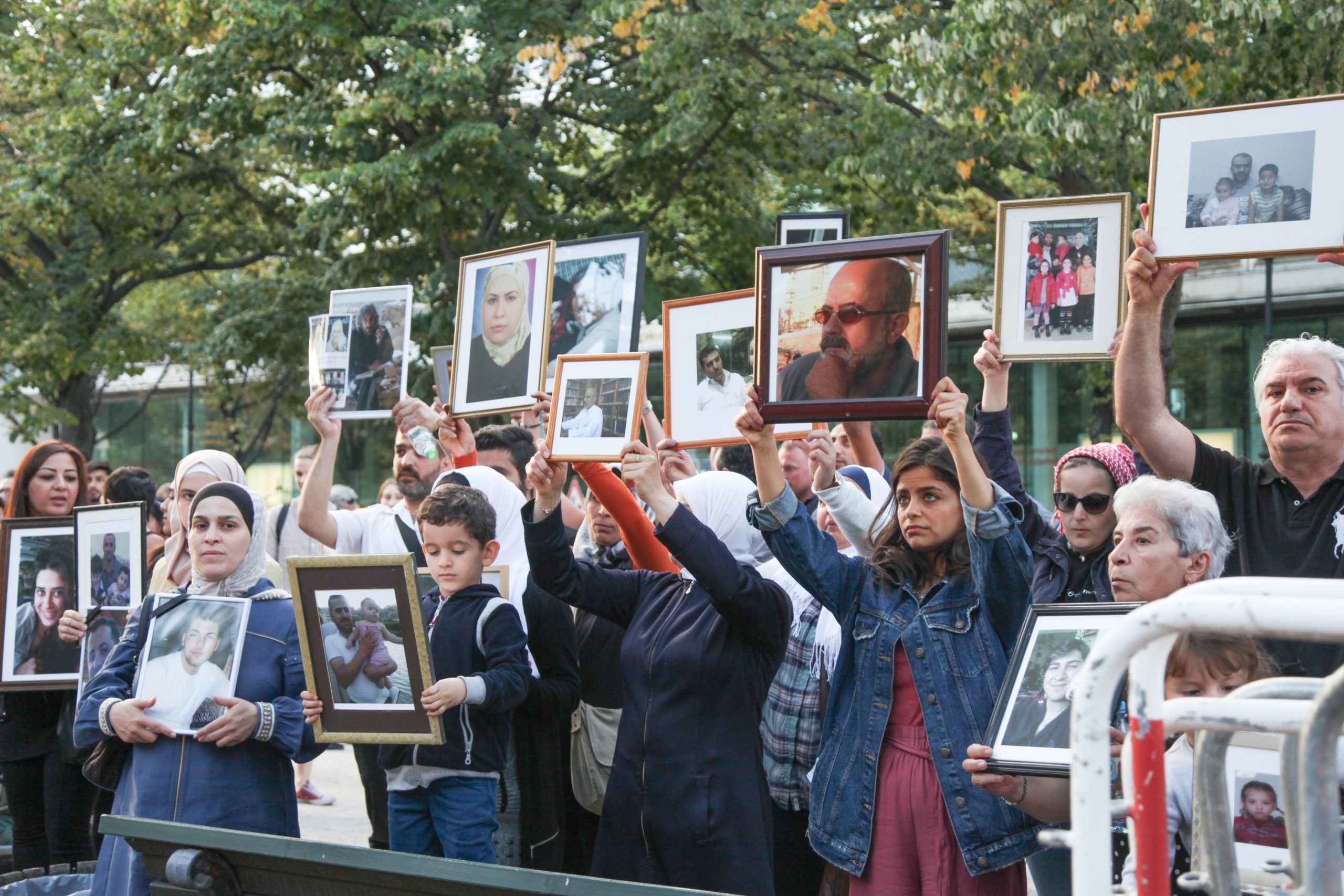On the International Day of the Victims of Enforced Disappearances, August 30, Doha News looks into cases of enforced disappearances in the Middle East and North Africa region while speaking to those who survived or have yet to learn the fate of their loved ones.
It was 11 years ago when Wafa Mustafa, a Syrian journalist and activist, last saw her father Ali Mustafa in Damascus.
On July 2, 2013, Mustafa, 23 years old at the time, suddenly lost contact with him, only to realise that he became another victim of the Bashar Al-Assad regime’s crime of enforced disappearance.
“The daily question for me is, is my father still alive?[…]I see a father holding his daughter’s hand and sometimes when I see stuff like this[…]I feel like[…]I’m deprived of such an interaction with my own father, maybe forever,” she told Doha News.
She added: “It’s very difficult to explain to people what it means to have your own father forcefully disappeared. My whole life centers around my father’s disappearance.”

According to Amnesty, Syria is among regional countries with high rates of enforced disappearance, including Yemen (1,547), Iraq (250,000 to 1 million) and Lebanon (17,415).
Assad intensified crackdowns on those who opposed him since the 2011 pro-democracy protests, when he plunged the country into war by attacking peaceful protestors.
According to the Syrian Network for Human Rights (SNHR), the regime detained 157,287 people between March 2011 and June 2024, of which at least 112,713 were forcibly disappeared, including 1,305 children and 6,698 women.
“I always say that I doubt there is a single family in Syria that doesn’t have anyone detained or forcibly disappeared or kidnapped, whether by the [Syrian] regime, by ISIS, or by other actors in the country. So this is a story of collective tragedy,” Mustafa said.
Campaigns and initiatives have been launched over the past decade to bring back those who have been forcibly disappeared.
In June 2023, Qatar was among 83 members who voted in favour of a United Nations General Assembly resolution to create an independent body to investigate the fate of thousands of people who remain missing in Syria.
A ‘slow death’
Like Mustafa, Jalal Jalal (an alias) does not know the whereabouts of his brother Mohammed who was detained on February 3, 2013.
Jalal himself was detained twice, first during the beginning of the revolution on May 6, 2011 and second on August 28, 2011 for five years, where he experienced some of at least 72 methods of torture ranging from pouring hot water on detainees to forcing them to bury those killed inside the prisons.
“It was a mass death and we were dying slowly,” Jalal told Doha News.
The last information he received about his brother was in 2016, but he is yet to know his fate.
“We do not know the length of the sentence or the charges against him. All we know is that he was either executed by hanging, burning, or by firing squad according to international reports on methods of execution in prison, or he is still forcibly disappeared in Sednaya,” he said.
Egypt’s Abdel-Fattah El-Sisi has also continued to carry out enforced disappearances, with 4,253 cases recorded between 2015 and 2023 by the “Stop Enforced Disappearance” campaign.
Sisi had seized power in a military coup in 2013 against the late Mohamed Morsi, Egypt’s first democratically elected president.
Abdullah, an Egyptian journalist at Al Jazeera, was detained while documenting Sisi’s crimes during the Rabaa Massacre of August 14, 2013, when thousands staged a sit-in at the Rabaa Al-Adawiya square demanding the reinstatement of Morsi.
Security forces fired at the peaceful protest, killing more than 817 people in what marked the largest mass killing in Egypt’s modern history.
Abdullah’s family did not know about his whereabouts for three days and was forcibly disappeared again during the end of his imprisonment, when he was kept in solitary confinement between May 2 and June 14, 2014.
“They made some sort of a fiasco show, during which they searched around and then claimed that they had found a phone and the prison warden wanted to see me. I stayed there for about an hour without anyone attending to me in his room,” he told Doha News, recounting the moment he was transferred to the Scorpion Prison.
Abdullah was subjected to physical and psychological torture as well as medical negligence. He had decided to go on a hunger strike on January 21, 2014, after the court decided he would be detained for 45 additional days as part of a periodic renewal.
“I just thought that if I were to lose my life, then let it be for a value, let it be for an advantage and eventually, Praise be to Allah, that was the way in which he wanted me to be released,” he said.
Abdullah was released on June 18, 2014 after his 147-day hunger strike, but the horrors of his imprisonment can hardly be forgotten.
“Some of these prisoners would stand at night by the cell door and shout out the names of their loved ones. There was a person who would, at a certain time every night, stand and call on his kids and his wife like he’s speaking to them[…]I can never forget that,” he said.

Meanwhile, in Gaza, Israel has forcibly disappeared thousands since the beginning of the war on October 7, 2023 and has killed at least 40,602 people.
While the total of those taken by occupation forces remains unclear, accounts from released Palestinians, investigations and footage has exposed Israel’s harrowing methods of torture, from rape and attacks by dogs, to sleep deprivation.
There are also 3,432 Palestinians under administrative detention, meaning they are imprisoned without charge or trial for an indefinite period.
Looking at the current state of enforced disappearance in the region, Mustafa underlined that only victims can help one another to achieve justice.
“The same world that has let Syrians down for the past 13 years[…]has let Palestinians, Sudanese, Egyptians and Iraqis down[…]I only believe that we, as victims, can support other victims[…]Syria cannot be free and democratic and just if Palestine is under occupation and under genocide and if Iraq is also struggling, if Sudan is struggling,” she said.







